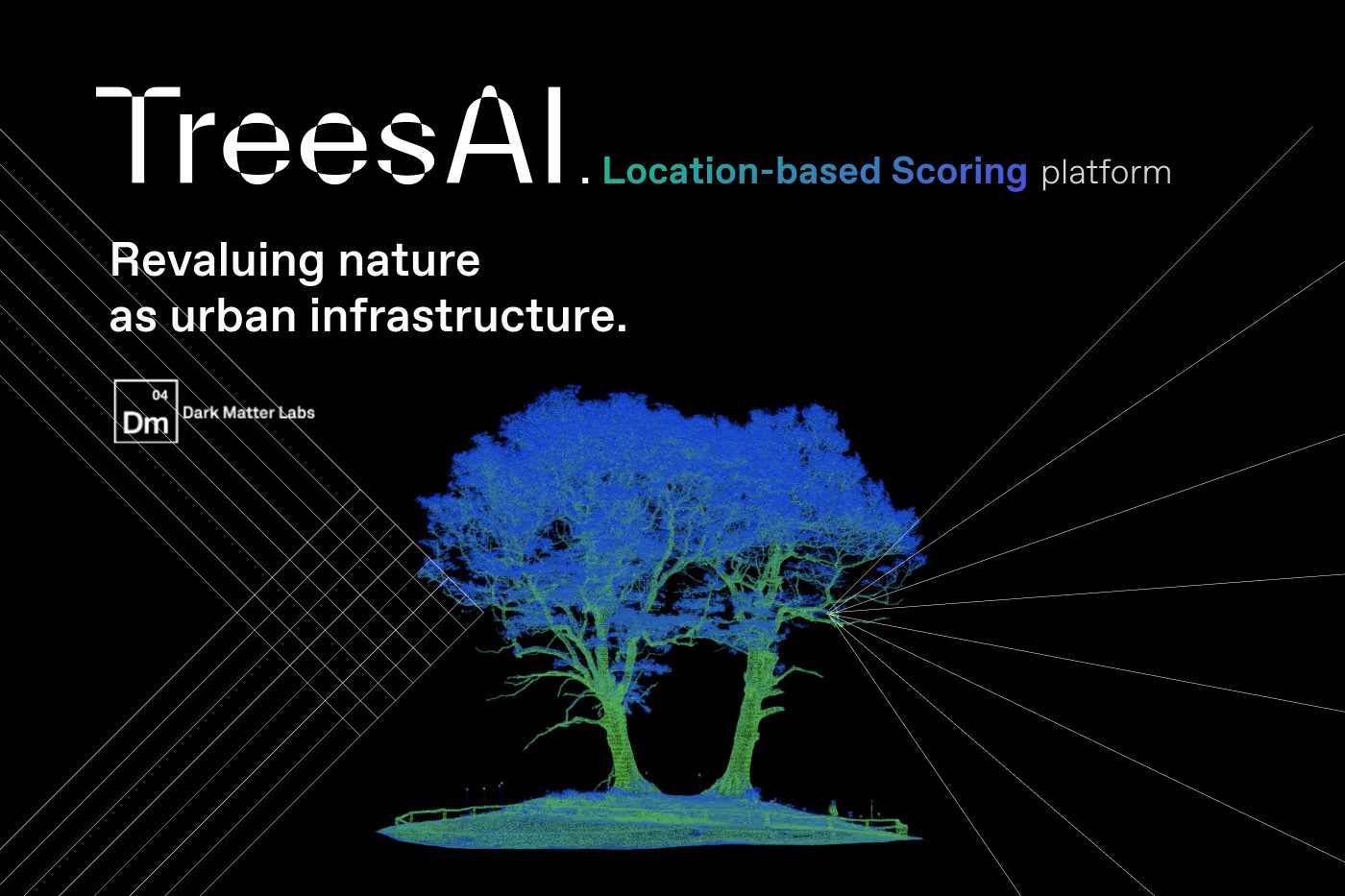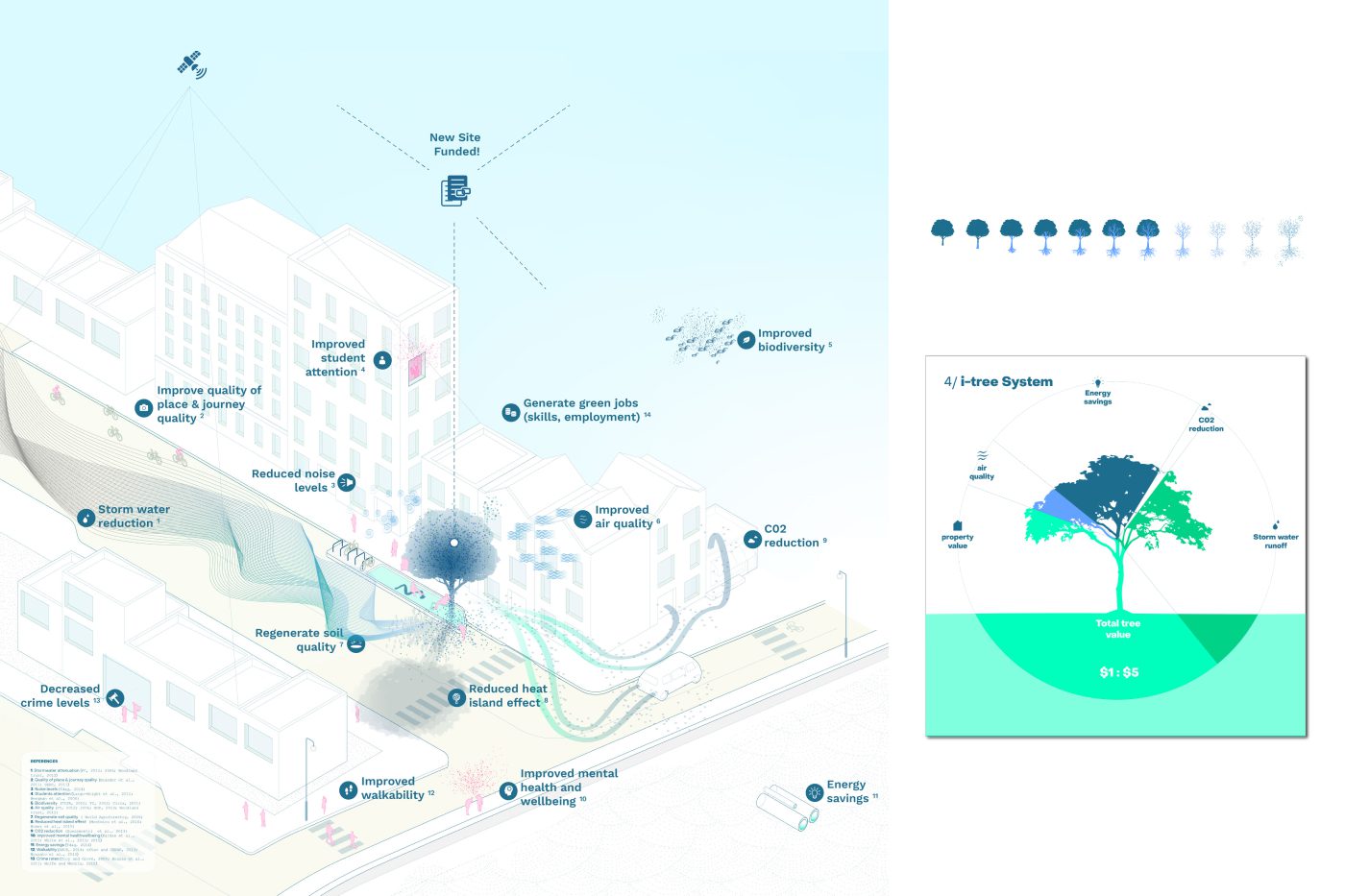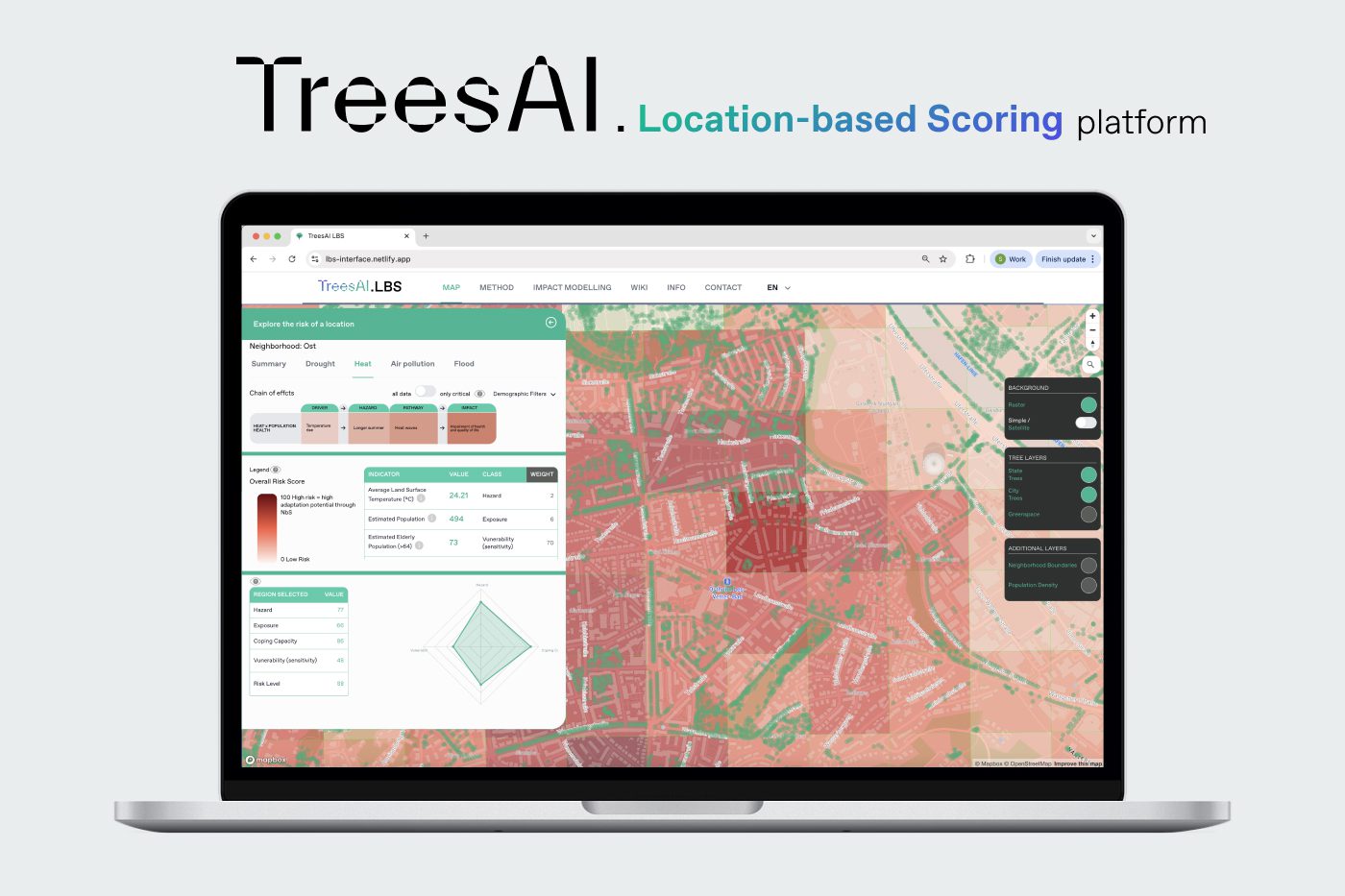Project implementation: Germany
Project development: United Kingdom
Against a backdrop of growing climate challenges and urban inequalities, TreesAI emerges as an innovative response, aiming to revalue urban nature not just as an aesthetic component, but as critical, investable infrastructure for more resilient and just cities. Our tool, Location-Based Scoring (LBS), offers a practical, data-driven approach to addressing the complexities of the built environment and the environmental issues that impact cities.
TreesAI, born from the innovative context of Dark Matter Labs, is not traditional software. It is a dynamic system of quantitative and qualitative tools and methods, developed to meet the specific needs of partners involved in building more sustainable cities. The system's core essence is its ability to integrate innovative technologies with relevant data, positioning trees and urban ecosystems as investable infrastructure assets.
TreesAI's proposal goes beyond the traditional view of investing in nature. Rather than limiting itself to carbon offsetting, TreesAI focuses on the numerous co-benefits that nature offers cities. These benefits include thermal regulation, stormwater management, improved air quality, and contributions to public health and social well-being. By focusing on these multiple values, TreesAI proposes rethinking the value of nature in urban planning, creating financing models that recognize the long-term impact of nature-based solutions.
This approach transforms natural assets into tangible investments, generating a new civic economy that prioritizes the health of the planet and its inhabitants. A practical example of this innovative approach was the Location-Based Scoring (LBS) pilot project, conducted in Stuttgart, Germany, in 2023. In this project, we developed a tool to provide a deep, high-resolution understanding of georeferenced climate risk areas.
LBS allows users, from urban planners to community members, to explore the location profile of their cities, accurately identifying climate risks and vulnerabilities. The tool adapts to the specificities of each territory, offering granular and actionable insights to city managers and policymakers. With contextual adjustment capabilities, LBS transforms complex data into intuitive maps and scores, facilitating informed decisions about where and how to implement nature-based solutions, such as tree planting and urban flood management.
Visualizing LBS data helps simplify the analysis of critical information. This visualization allows urban planners to clearly see where climate risks are highest and where nature-based solutions, such as tree planting, can have the greatest impact. By utilizing real-time data and enabling contextual analysis, LBS offers a practical approach to mitigating climate risks, creating more efficient and adaptable green infrastructure.
The integration of LBS with other systems and methods developed by Dark Matter Labs creates a robust platform for TreesAI partners, enabling them to monitor, plan, and invest in green infrastructure more effectively. TreesAI's vision goes beyond simply using data—it proposes a revolution in the way cities approach the use of natural resources, recognizing them as assets that can generate long-term benefits for both society and the environment.
This is an invitation to rethink the value of nature in urban planning, especially for cities like São Paulo, where climate challenges and urban inequalities are widely felt. Through tools like LBS and Resilience Compass, TreesAI aims to transform the way urban managers think about green infrastructure, offering a fairer and more efficient financing model for the sustainable future of cities.




